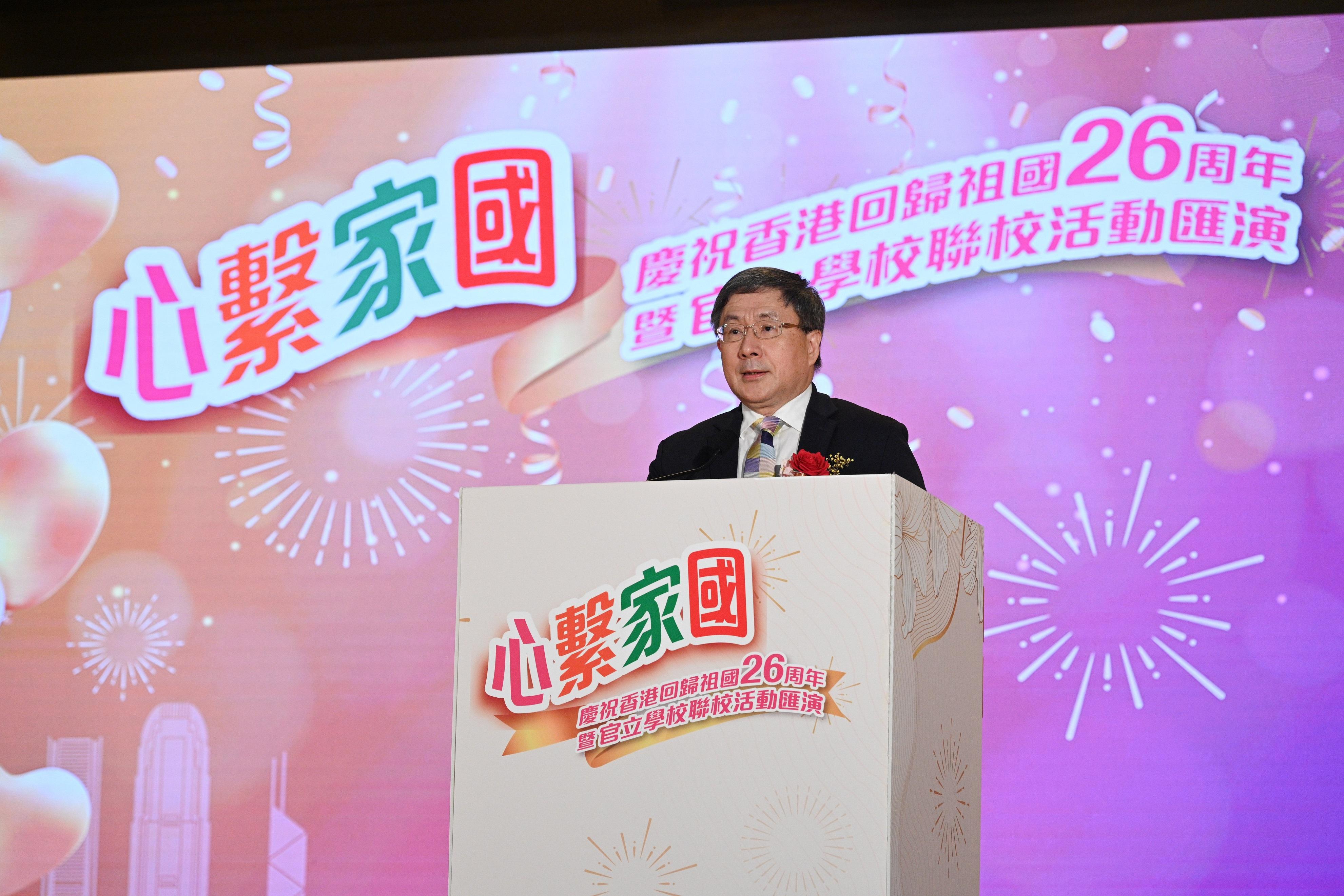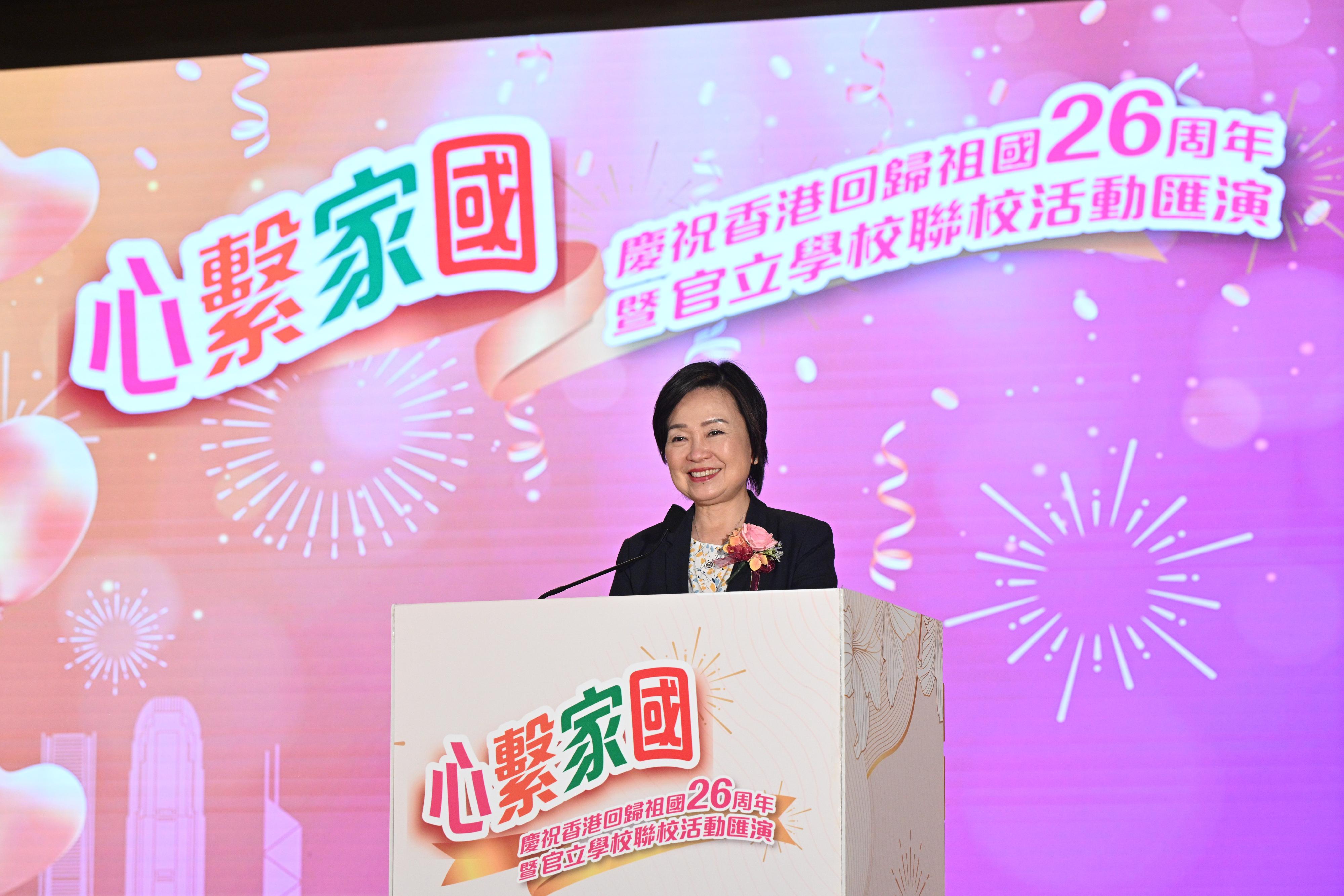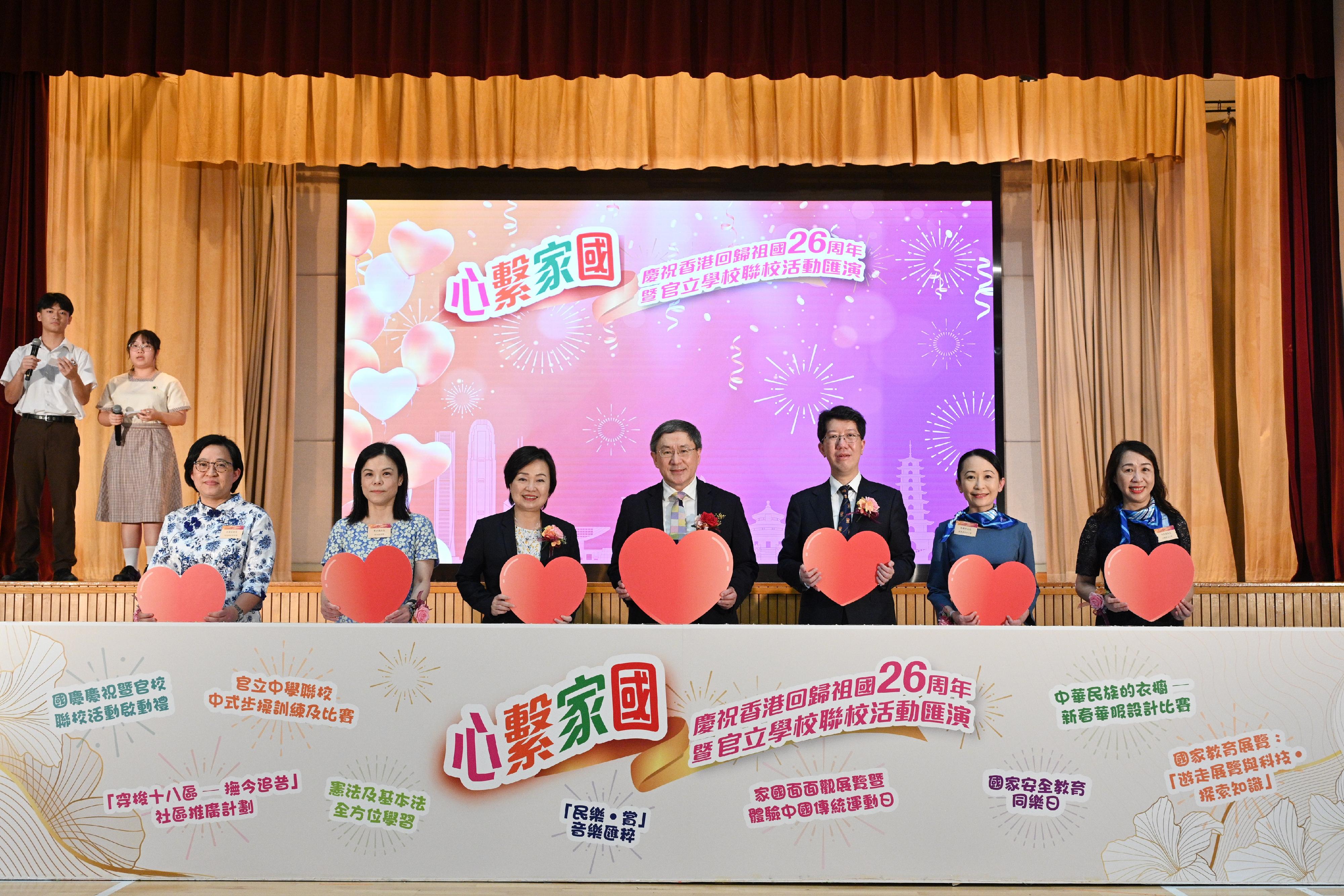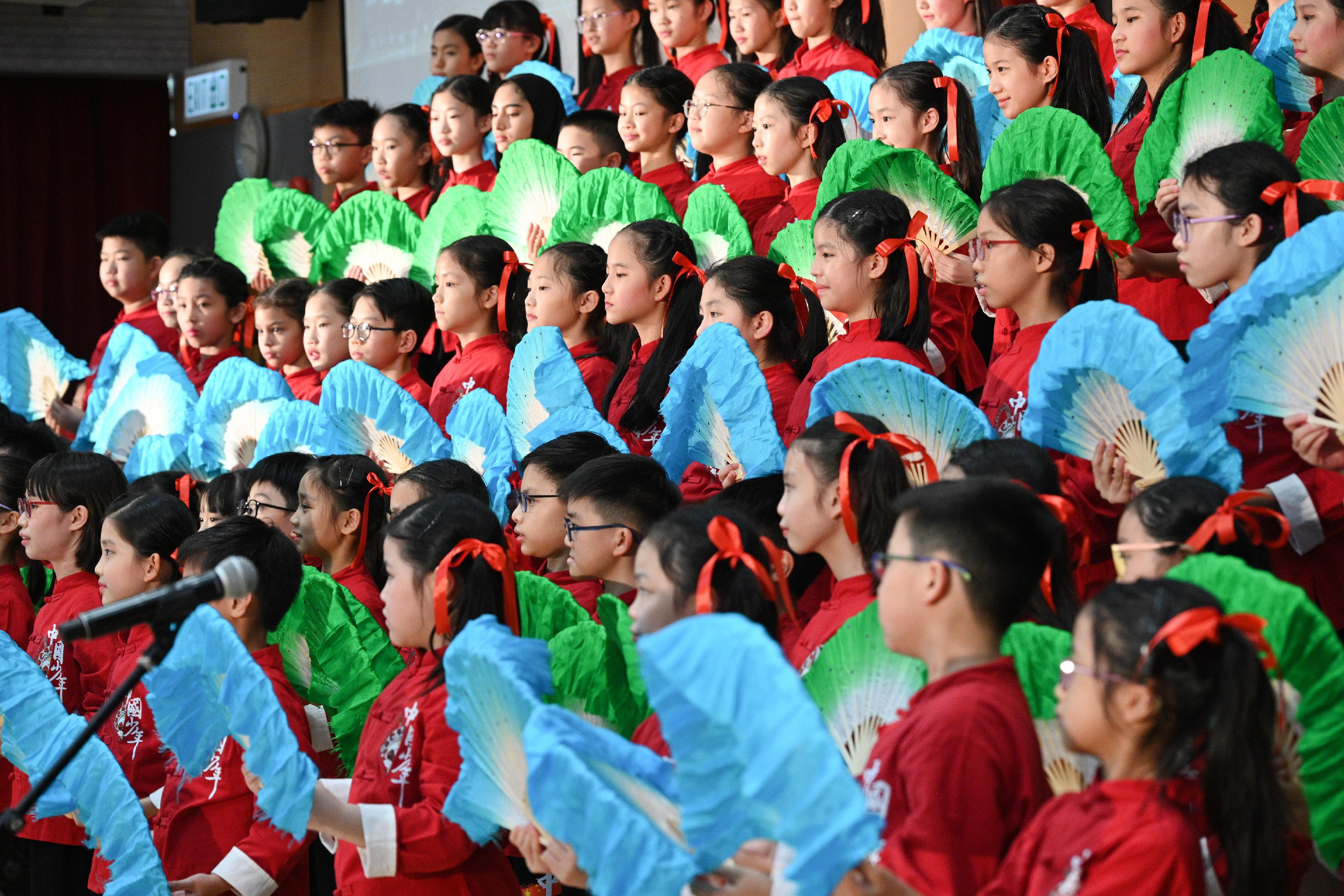Following is a question by Reverend Canon the Hon Peter Douglas Koon and a written reply by the Secretary for Labour and Welfare, Mr Chris Sun, in the Legislative Council today (June 21):
Question:
It is learnt that the divorce rate in Hong Kong has been on the rise in recent years, and the number of single-parent families has also increased drastically, with more and more difficulties being faced by them. On the other hand, since the Government's cessation in 2004 of subvention for the five single parent centres (SPCs) operated by non-governmental organisations (NGOs), the services needed by single-parent families have been provided by the Integrated Family Service Centres (IFSCs) and the Specialised Co-parenting Support Centres (SCSCs) under the Social Welfare Department. However, some concern groups on single-parent families have relayed to me that the services provided by IFSCs and SCSCs lack focus and continuity, and do not meet the needs of single-parent families. In this connection, will the Government inform this Council:
(1) of the number of single-parent families throughout the territory and the number of children they had, in each of the past five years;
(2) of the following information on each of the IFSCs and SCSCs in each of the past five years: (i) the number of requests for assistance from single parents handled (with a breakdown by new and old case), (ii) the average time taken for handling such requests, (iii) the staffing establishment, and (iv) the average number of cases handled by each social worker (with a breakdown by active and completed case);
(3) whether it will review the operation and staffing establishment of IFSCs and SCSCs on a regular basis, as well as consider allocating additional resources to enhance their manpower in a timely manner; if so, of the details; if not, the reasons for that;
(4) given that there are views that the situation of default on maintenance payments has continued to deteriorate in recent years, and single parents who are owed maintenance payments have no channel to lodge complaints, and that the Government, in reply to a question raised by a Member of this Council on February 22 this year, indicated that it was considering the recommendation of establishing a dedicated unit to assist in the implementation of a maintenance assurance scheme and the enforcement of court orders to recover maintenance in the "Further Study on the Phenomenon of Divorce in Hong Kong", of the progress of the relevant work;
(5) whether it will consider resuming the subvention to NGOs for opening SPCs; if so, of the details; if not, the reasons for that; and
(6) whether it will consider strengthening the support for carers of single-parent children, such as giving priority consideration to single-parent families for the provision of after-school care services, and providing full-time carers of single-parent families with cash assistance or allowances, etc. which can maintain their living; if so, of the details; if not, the reasons for that?
Reply:
President,
In consultation with the Home and Youth Affairs Bureau, the reply to the Member's question is as follows:
(1) According to the "2021 Population Census – Thematic Report: Single Parents" by the Census and Statistics Department, the number of single parents and the number of dependent children of single parents in Hong Kong are 72 279 and 94 508 respectively in 2021.
(2) In the past five years, the number of cases involving single parent families handled by the Integrated Family Service Centres (IFSCs) operated by the Social Welfare Department (SWD) or subvented non-governmental organisations (NGO) is tabulated below:
| Year |
Total number of cases involving single parents |
Number of new and re-activated cases involving single parents |
| 2018/19 |
11 305 |
4 848 |
| 2019/20 |
10 462 |
4 262 |
| 2020/21 |
10 703 |
4 470 |
| 2021/22 |
10 440 |
4 247 |
| 2022/23 |
10 082 |
4 173 |
The IFSCs do not maintain the average case-handling time for cases involving single parents seeking assistance.
The IFSCs arrange their manpower according to the district's service needs, caseload and complexity of the cases. The notional staffing establishment of the IFSCs for the purpose of calculating recurrent subvention is at Annex. The IFSCs do not have the average number of cases handled by each social worker.
In addition, starting from 2019, the SWD has subvented NGOs to operate five Specialised Co-parenting Support Centres (SCSCs) to provide one-stop specialised services for separated/divorcing/divorced parents and their children, including co-parenting counselling and parenting co-ordination service, parenting groups or programmes, children contact service, etc, to assist the separated/divorced parents in carrying out parental responsibilities under the "child-focused" principle, strengthening parent-child connection and providing support to children affected by parental separation/divorce and family change to promote their healthy development physically and mentally. The staffing establishment of each SCSC consists of seven registered social workers (including one centre supervisor). Under the Lump Sum Grant Subvention System, NGOs can flexibly deploy resources and arrange suitable staffing. When providing services to assist divorced parents in jointly fulfilling their parental responsibilities, the SCSCs do not enquire service users about their specific divorce status, i.e. being separated, in the process of divorce, or has completed the divorce, and therefore do not maintain the breakdown of the number of cases involving single parents (and those who have completed the divorce) seeking assistance and the average number of cases handled by each social worker of the SCSCs.
(3) and (5) The SWD has studied different modes for delivering family services. After reviewing and consolidating the views of various parties, it is considered that the current IFSC mode with the introduction of community-based concept should be able to use resources more effectively and provide more comprehensive and convenient support services for families in need. To meet the needs of single parent families, the IFSCs organise groups and programmes specially designed for them, such as mutual help groups and talks. Social workers of the IFSCs conduct comprehensive assessment on the need of the service users and provide suitable services, including effective parenting and positive coping with life challenges, through early identification and intervention, service integration, and partnership with other service stakeholders, etc. The IFSCs also provide additional services for families in need, such as intensive counselling, arrangement of clinical counselling and assistance catering for special needs (e.g. compassionate rehousing, emergency relief fund, etc.).
The SWD has from time to time enhanced social worker manpower for the IFSCs since the adoption of the integrated family service mode in view of the increasingly complicated case nature. From 2004-05 to 2018-19, the Government has provided the IFSCs with the manpower resource for 154 additional social workers. Moreover, to enhance preventive and supportive services for vulnerable children and youth, the Government has provided the IFSCs with additional resources from 2019-20 onwards, for a total of additional 26 frontline social workers and 14 family aide workers.
Furthermore, the above-mentioned SCSCs also provide a variety of services for separated/divorcing/divorced parents and their children.
The SWD reviews from time to time the current family service model to ensure the services are kept up to date and that families in need continue to receive appropriate support services. The SWD will also continue to closely monitor the service needs, operation and staff establishment of the IFSCs and the SCSCs, and allocate more resources when necessary.
(4) The Government is committed to enhancing the effectiveness of the system of collecting maintenance payments and enforcing maintenance orders. Over the years, a series of improvement measures has been implemented to facilitate divorcees recovering maintenance payments. Publicity and education programmes are also in place to enhance public understanding of the responsibilities of maintenance payers, rights of maintenance payees and services available to payees when they fail to receive maintenance payments.
Regarding the suggestion on setting up a dedicated department by the Government to handle matters related to maintenance payment, experience of maintenance assurance schemes in other jurisdictions has suggested problems such as long processing time with only few cases handled, management problems and high administrative costs. Moreover, such a maintenance assurance scheme will inevitably need to impose certain restrictive measures, e.g. suspension of passports and driving licenses, on defaulting maintenance payers as the means to recover maintenance arrears. These measures are controversial in nature as there will be concerns about the rights of individuals and privacy, rendering doubts about the feasibility under the laws of Hong Kong.
The Government will continue to keep the system of collection of maintenance payments and enforcement of maintenance orders under review with a view to assisting people in need to recover maintenance payments. In addition, there is a lack of comprehensive data relating to maintenance payments at present. The Government will attempt to gather further information of relevance for analysis.
(6) The SWD subsidises NGOs to provide a variety of child care services for children, to support parents who are unable to take care of their children temporarily including increasing aided standalone child care centre places, enhancing the service of Neighbourhood Support Child Care Project, implementing the Enhanced After School Care Programme (ASCP) and re-engineering Mutual Help Child Care Centres by phases to provide ASCP for pre-primary children, etc. The Government recognises that certain families with welfare needs require extra support in dealing with the mental and financial pressures when taking care of their children. In this connection, in formulating various social welfare policies and services, the Government has been taking the maintenance and strengthening of family functions as the focus of family services, to provide various support services for carers of children and people in need. For example, the IFSCs/Integrated Services Centres provide emotional support to people in need, and make relevant referrals to support services (such as child care services, residential child care services and respite services) in accordance to the welfare needs of individual cases, thereby allowing the carers of children to be temporarily relieved from their caring responsibilities and alleviating their stress. The Government will also continuously improve its development strategies for child care services, adopt a family-based approach for its services, continue to subsidise NGOs to provide a variety of child care services to support the families in caring and nurturing their children, and to provide fee-waiving or fee-reduction subsidies to child care services for families in need to alleviate the financial burdens of grass-roots families.
In addition, the Government plans to launch the one-year School-based After School Care Service Pilot Scheme to provide focused support for underprivileged families, especially single parent families, with a view to allowing primary school students in need to stay after school to receive care and learning support, while enabling parents, who used to be tied up with caring responsibilities for their children during after-school hours, to choose to work and improve their livelihood. The Government will announce the details in due course.




